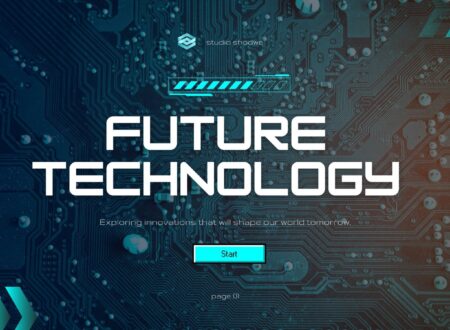Once a concept of science fiction, artificial intelligence (AI) is now deeply embedded in our everyday lives—often in ways we don’t even notice. From voice assistants and personalized ads to smarter healthcare and predictive tech, AI is transforming how we live, work, and interact with the world around us.
Let’s take a closer look at how AI is shaping our daily routines, the industries it’s revolutionizing, and what it means for the future.
1. AI in Your Pocket: Smart Devices That Know You Better Than You Think
The most accessible example of AI in daily life? Your smartphone.
Virtual assistants like Siri, Google Assistant, and Alexa use AI to interpret voice commands, answer questions, and perform tasks—from setting alarms to playing your favorite song. These tools improve over time, learning your habits and preferences for a more personalized experience.
Other common examples of AI on your devices include:
- Autocorrect and predictive text while typing
- Facial recognition to unlock your phone
- Photo categorization based on faces, locations, or themes
- Maps and navigation apps that predict traffic and suggest alternate routes
Even behind the scenes, AI powers many of the services you rely on, from spam filters in email to app suggestions based on your behavior.
2. Smarter Homes: How AI Is Making Living Spaces More Efficient
AI is also revolutionizing the way we live at home. Smart home devices are becoming more common and sophisticated, helping with energy efficiency, convenience, and security.
Examples of AI in the smart home include:
- Smart thermostats like Nest that learn your schedule and adjust temperatures automatically
- AI-powered security systems that detect unusual activity and send alerts
- Voice-controlled lighting and appliances
- Robot vacuum cleaners like Roomba that map your home and optimize cleaning routes
These technologies not only add comfort but also promote sustainability by helping us use energy more efficiently and reduce waste.
3. AI on the Road: Changing the Way We Travel and Commute
AI is playing a huge role in transportation, enhancing safety, efficiency, and personalization in the way we move from place to place.
One of the most talked-about advancements is the rise of self-driving cars. Companies like Tesla, Waymo, and Uber are developing autonomous vehicles that use machine learning, sensors, and real-time data to navigate roads with little or no human input.
But AI’s role in transportation goes beyond self-driving technology:
- Navigation apps use AI to suggest optimal routes, predict traffic, and estimate arrival times.
- Ride-sharing apps like Uber and Lyft use AI to match riders and drivers, set prices dynamically, and improve customer experience.
- Airline scheduling and predictive maintenance rely on AI to keep flights running safely and efficiently.
These innovations are steadily shaping a future where commuting is smarter, safer, and more seamless.
4. AI in Entertainment: Personalized Content at Your Fingertips
Ever wonder how Netflix always seems to know what you want to watch next? That’s AI at work.
Streaming platforms, music apps, and even social media feeds use powerful AI algorithms to analyze your behavior and preferences to recommend content tailored just for you.
Here’s where AI shows up in entertainment:
- Netflix, Hulu, and YouTube recommendations based on your viewing habits
- Spotify and Apple Music creating custom playlists using AI models
- Social media feeds (Facebook, Instagram, TikTok) using algorithms to show you more of what you engage with
- Video game AI that creates smarter, more responsive non-player characters (NPCs)
AI is reshaping how we consume media by making it more personal, engaging, and relevant—sometimes so effectively that it’s hard to stop scrolling or binge-watching.
5. Behind the Scenes: AI in Healthcare, Finance, and Daily Decision-Making
While AI shines in consumer products, it’s also transforming critical sectors that impact our well-being and financial lives.
In healthcare, AI is used for:
- Diagnosing diseases through medical imaging analysis
- Personalizing treatment plans
- Predicting health risks using patient data
- Managing administrative tasks more efficiently
In finance, AI helps detect fraud, automate investing through robo-advisors, and approve loans based on data analysis rather than manual credit checks.
Even online shopping is shaped by AI. Algorithms suggest products, set prices dynamically, and optimize supply chains behind the scenes.
Every time you:
- Get a product recommendation on Amazon
- Use a chatbot for customer support
- Receive an alert from your bank about unusual activity
…you’re interacting with AI that’s working in the background to make things more efficient and user-friendly.
Final Thoughts: Living in an AI-Enhanced World
AI is no longer a futuristic concept—it’s a daily reality. Whether you’re chatting with a voice assistant, getting directions, streaming your favorite show, or making a doctor’s appointment, AI is working behind the scenes to make life smoother, smarter, and more connected.
But as AI becomes more embedded in daily life, it’s important to stay informed. Questions around data privacy, bias in algorithms, and job automation are real and worth considering. The key is to embrace AI thoughtfully, understanding how it can benefit us while staying aware of its broader impact.
So next time your phone unlocks with a glance or your coffee machine starts brewing on schedule, take a moment to appreciate the invisible intelligence making your world more convenient — one algorithm at a time.
Would you like this adapted for a specific industry (tech, education, healthcare, etc.), optimized for SEO, or repurposed into short-form content for social media? Let me know!
4o





